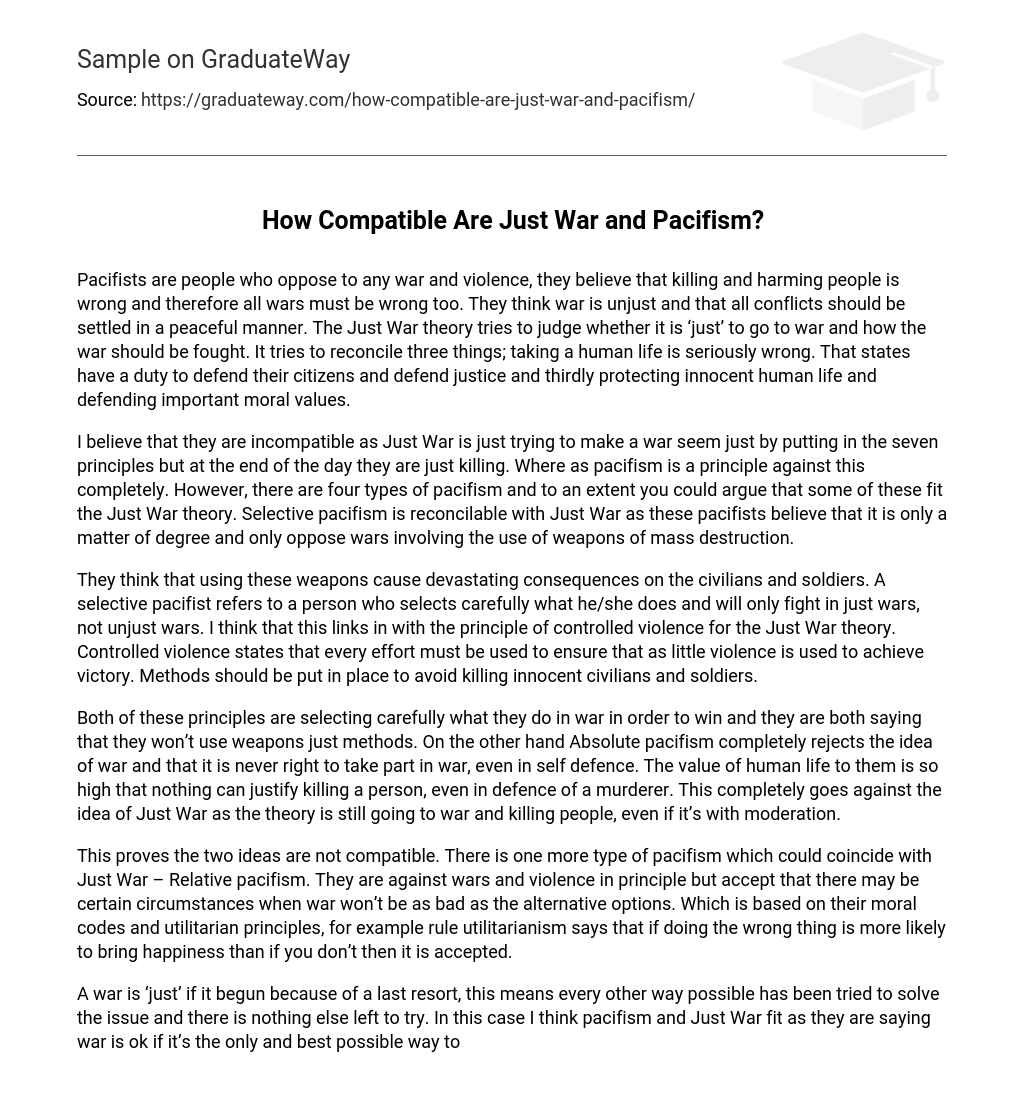Pacifists oppose war and violence, believing that killing and harming people is morally wrong, making all wars unjust. They advocate for peaceful conflict resolution. The Just War theory assesses the justice of going to war and the conduct of war. It aims to reconcile three principles: the sanctity of human life, the duty of states to protect their citizens and justice, and the defense of innocent lives and moral values.
In my opinion, Just War and pacifism do not agree. Just War uses seven principles to justify war, even though it still results in loss of life. On the other hand, pacifism strongly opposes this idea. However, there are four types of pacifism, and some argue that certain forms align with Just War theory. For example, selective pacifism can be aligned with Just War as these individuals believe that opposition to war is only a matter of degree and specifically reject wars involving weapons of mass destruction.
These weapons are thought to have a destructive effect on both civilians and soldiers. A selective pacifist chooses when to participate in warfare, only joining just wars rather than unjust ones. In my opinion, this aligns with the principle of controlled violence in the Just War theory. Controlled violence focuses on minimizing the use of force to achieve victory and taking measures to protect innocent civilians and soldiers.
Both Just War and Absolute pacifism have their own approaches to war. Just War advocates for careful selection of actions in war to achieve victory, emphasizing methods over weapons. On the other hand, Absolute pacifism completely rejects war and believes it is never morally acceptable to engage in any form of conflict, including self-defense. According to Absolute pacifism, the value placed on human life is so high that no circumstance can justify taking someone’s life, even when defending against a murderer. This stance contradicts the principles of Just War, which still involve going to war and causing casualties, albeit with moderation.
This shows the contradiction between the two concepts. However, there is another type of pacifism known as Relative pacifism that can be in accordance with Just War principles. Relative pacifists are against war and violence overall but recognize that there may be specific situations where war is a better option than the alternatives. This viewpoint is based on their moral codes and utilitarian beliefs. For example, rule utilitarianism states that if committing an unethical act is more likely to lead to overall happiness than not doing it, then it is considered justified.
A war can be considered ‘just’ if it is initiated as a last resort, signifying that all other possible means of resolving the issue have been attempted and exhausted. In my opinion, both pacifism and the concept of Just War align in their belief that warfare is acceptable if it is the only and most effective method to resolve the conflict. However, I believe that pacifism and Just War are ultimately incompatible. Pacifism, as a whole, unequivocally refuses to condemn any war or violence, which contradicts the principles of Just War, whose objective is to provide a justification for going to war.





